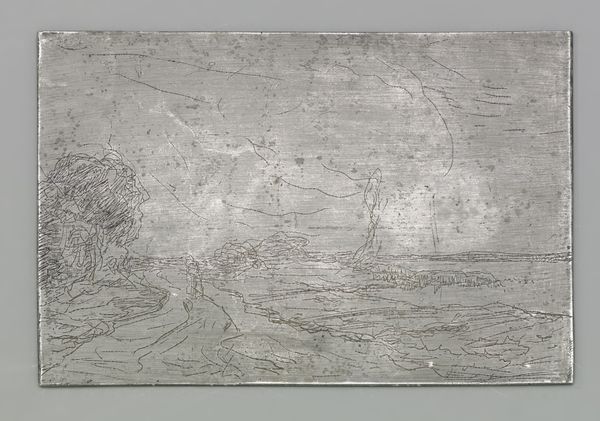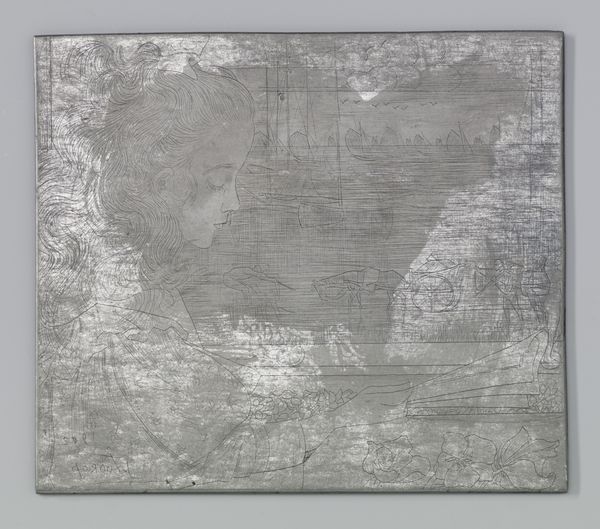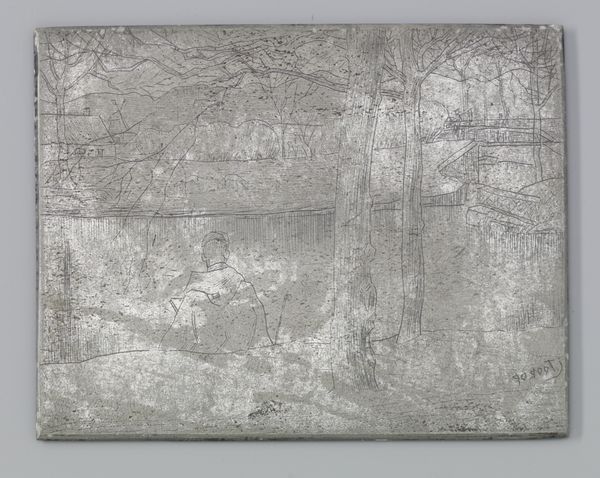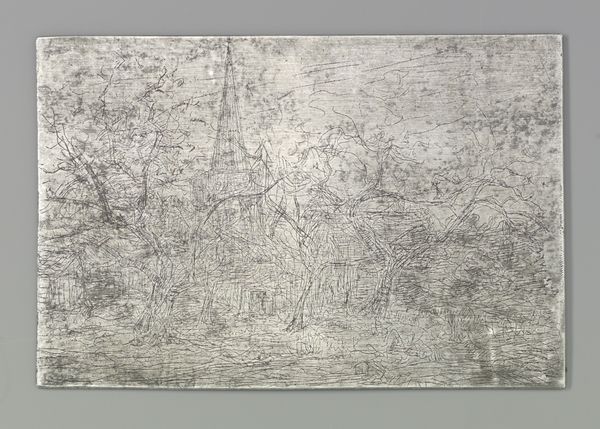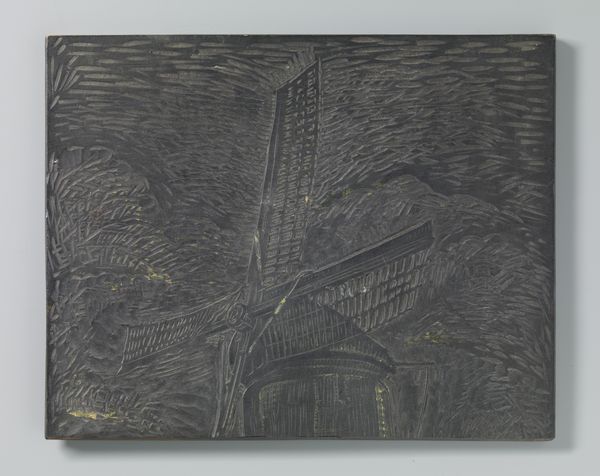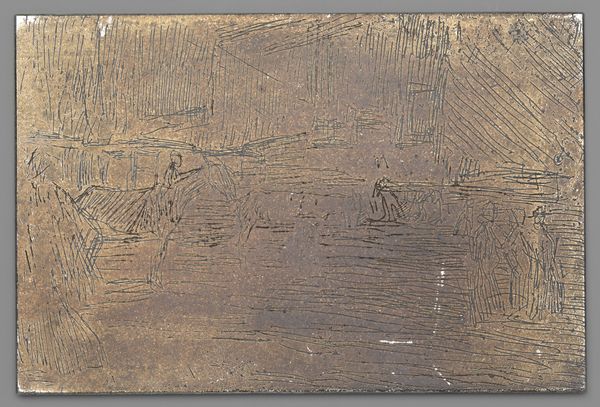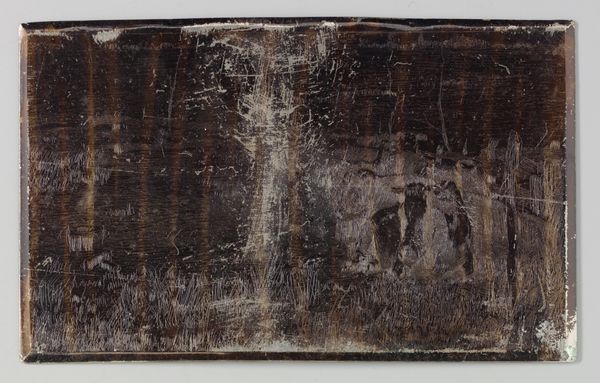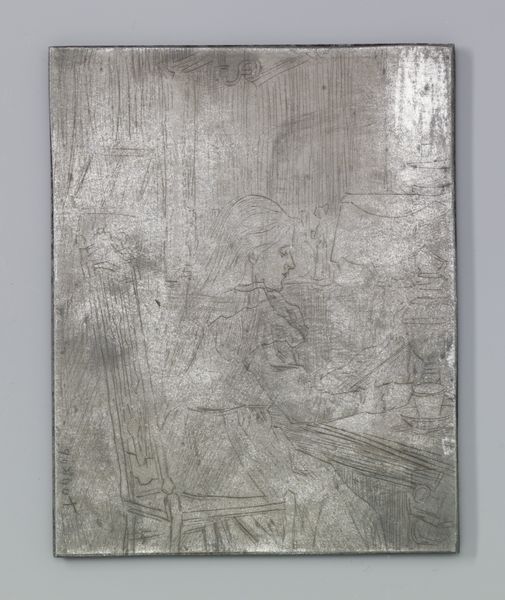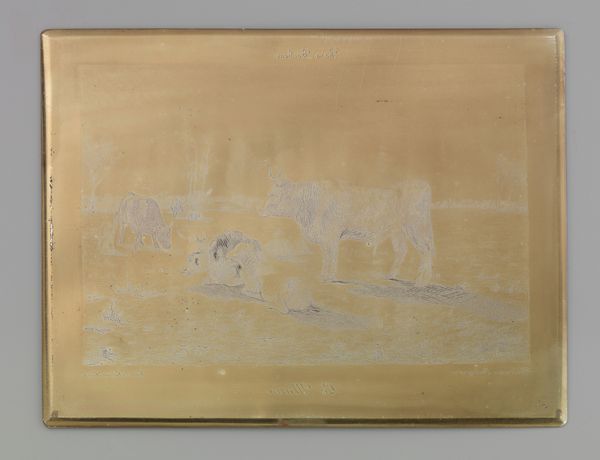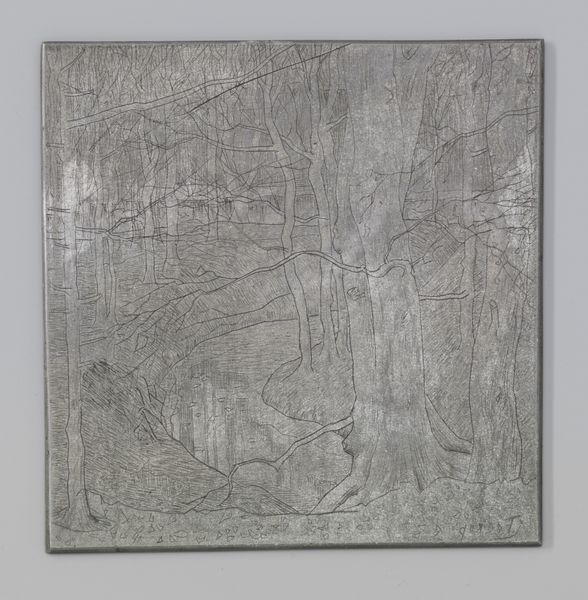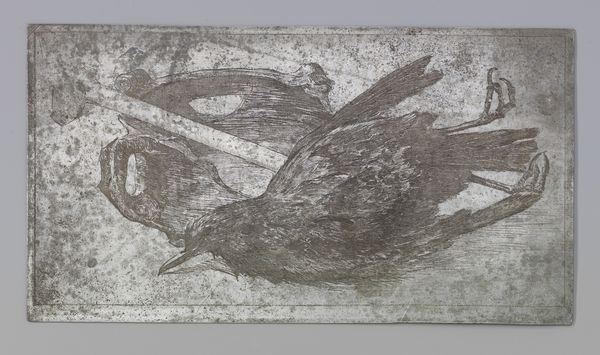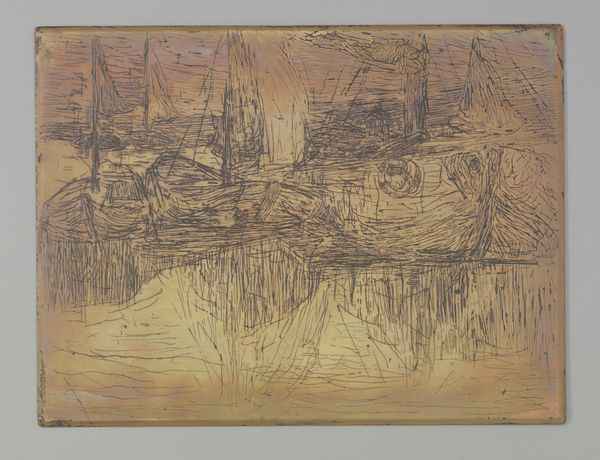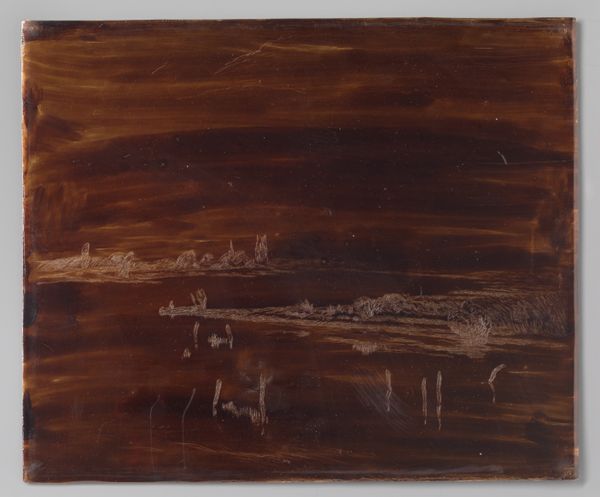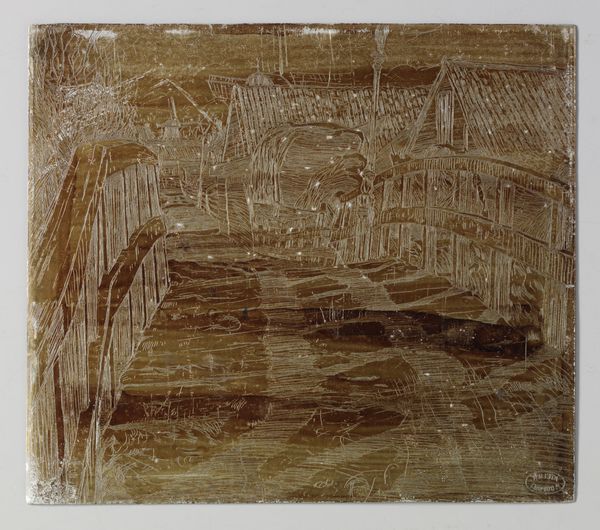
print, etching
# print
#
etching
#
landscape
#
line
#
realism
Dimensions: height 105 mm, width 200 mm
Copyright: Rijks Museum: Open Domain
Editor: So, this is Floris Verster’s "Mestvaalten bij avond," an etching from 1890. There's this eerie, almost desolate feeling it evokes. The stark lines and sparse details make me think about isolation. What's your read on it? Curator: I see that sense of isolation, certainly. But I'm drawn to how Verster uses this bleak landscape to possibly reflect the social and political climate of the late 19th century. Consider the burgeoning industrialization; might this be a critique of humanity's impact on the environment, a subtle commentary on the exploitation of the land? What does the Dutch landscape signify at this historical juncture? Editor: That’s interesting! I hadn’t thought about it as environmental commentary. I was focused on the individual's emotional response to the scene, not its socio-political context. Curator: The two aren’t mutually exclusive, of course! The personal and political often intertwine. Think about who had access to and control over the land at the time. Were there tensions between rural communities and emerging capitalist structures? How might this seemingly simple landscape reflect broader power dynamics and anxieties about progress? Editor: I guess it's about expanding how we frame “realism,” right? It’s not just a literal depiction, but an engagement with social realities. I’m looking at it now with a new dimension. Curator: Precisely. And by situating the work in its time, we can also discuss Verster’s potential anxieties regarding the rapid disappearance of certain rural traditions, perhaps? Editor: That makes a lot of sense. It's definitely a powerful lens through which to view this work, looking beyond the purely aesthetic and thinking about its role within larger cultural narratives. Curator: Yes. It encourages us to ask difficult questions and challenges the traditional narratives in art history. Editor: I'll definitely keep that in mind for my research moving forward. Thanks!
Comments
No comments
Be the first to comment and join the conversation on the ultimate creative platform.
